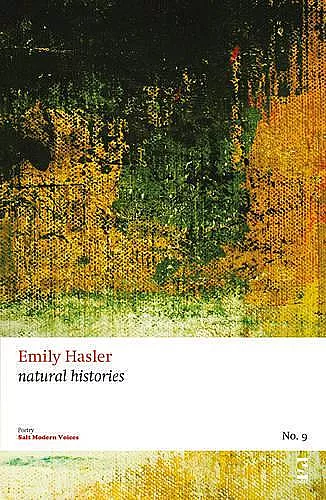natural histories
Format:Pamphlet
Publisher:Salt Publishing
Published:15th Oct '11
Currently unavailable, our supplier has not provided us a restock date

Hasler has real gifts: her observations are sharp, her language is crisp, and her music is beguiling. -- Paul Batchelor Hasler is one of those poets: her tender, intelligent eye illuminates the real. I always read her work with pleasure. -- Emma Jones There's a wonderful exuberance about the poems in Emily Hasler's 'Natural Histories'. Her joy in language is as clear as her pleasure in her encounters with animals and birds, whether existing or extinct. Her creatures resist being held by simple definitions as she strives to glimpse new truths, extending the confines of purely scientific research. As nature writing redefines its parameters, Emily Hasler is an exciting poet for the future. -- Andrew Forster
Nature is an unavoidable force in these poems, providing space for meditations on our knowledge of self and other. How do our environments and pasts affect us? How did we become? These poems have their own organic forms, adapted to purpose. Precision and sentiment give this debut force and vitality.
Nature is not so much the subject as an unavoidable force in these poems, providing space and fodder for meditations on our knowledge of self and other. Here, the small histories that complement or contradict grand narratives come to the fore. Hasler adopts the stance of the naturalist, seeking to observe and collect, but with the imagination working alongside the eye. Along the way these poems confront questions of naming and categorising, and ask how our environments and our past affect us, and we them. How did we become? Change and adaptation is the key here. The manner of investigation never shies away from the fact that nature can be both deeply personal and unfamiliar. Rather it embraces both of these aspects and uses them to construct its own narrative, one of shaping and discovery. Much like the subjects contained within them, poems have their own organic forms, adapted to purpose. It is this adaptation combined with precision and sentiment that give this debut force and vitality.
scrupulously attentive poems (that) compare favourably with the Elizabeth Bishop of “Sandpiper”
-- John Mole * Times Literary SupplemeISBN: 9781844718672
Dimensions: 198mm x 129mm x 3mm
Weight: unknown
36 pages